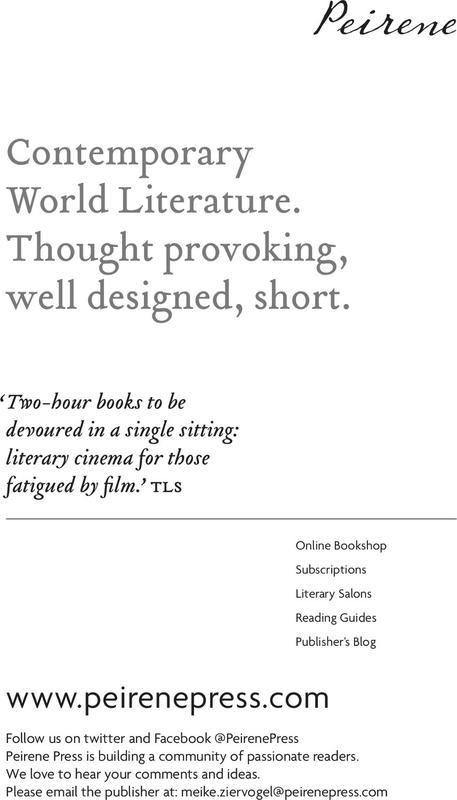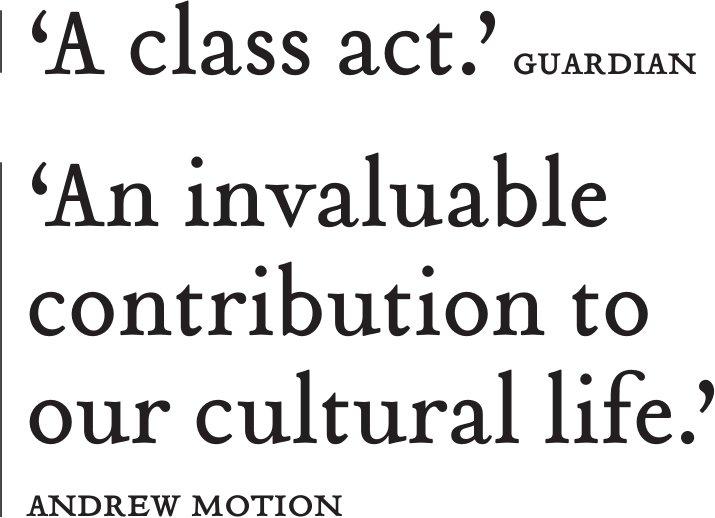The Dead Lake (10 page)
Authors: Hamid Ismailov

Aisulu was dying alone in a ward in the municipal
hospital
. Her father had brought her here and then had immediately been called to the testing ground. Her mother had stayed with her for the first few days, but had just left to see her aged parents, who lived in Semey. Aisulu lay there alone in the ward with the white ceiling. But she didn’t see the white ceiling. She saw the steppe and the road from Kara-Shagan to school and back. There she was, riding on the donkey with her Yerzhan, who had disappeared now, and the donkey suddenly picked up a cabbage stalk that someone had thrown out of a passenger train. The donkey had swallowed it whole and choked and lashed out. And first Aisulu and then Yerzhan tumbled off. Yerzhan shouted at Aisulu and
Aisulu grabbed the reins and Yerzhan put his arm up to the elbow into the donkey’s foaming mouth and pulled out the stalk. And then she took the scarf off her head, licked away the blood flowing along Yerzhan’s arm and bound the wound tightly.
A stalk, a huge stalk, had now got stuck inside Aisulu’s body and her organs were swelling, growing extravagantly, like the rest of her body.
She had admired Yerzhan, the way he played the violin, the way he studied and drew and sang Dean Reed, the way he walked into the Dead Lake, the way he was so protective of her… She had wanted to be his wife, to give him children as talented, brave and devoted as he was, but why had
it
happened to him and not to her? But what was this
it
? Hadn’t it happened to her as well? She was lying here, growing extravagantly on the outside and on the inside too, like the wild grass after the blasts, pregnant with her own incurable sickness, all alone in the entire, empty world.
Aisulu looked up again at the ceiling, which was turning bluish just as the last yellow ray of sunlight fell across it like a fox’s tail, and the fox cub that had brought her so much joy appeared before her eyes, the one that had crept out of their house unnoticed so many years ago. And Kapty bit it to death. How much weeping and wailing there had been that evening while Kepek buried the fluffy little body, only the size of a kitten. And each night that the mother fox could be heard howling for her dead baby, Kapty howled too, like he did before an atomic explosion.
And now Kapty had started howling in her immense, empty body.
A leaf struck against the hospital window and the sun fell behind the steppe.
A knock at the window woke me from my nightmares to the grey steppe morning. We stood at a way station. An inordinately tall Kazakh woman waved outside the window. She held a little parcel wrapped in newspaper. Yerzhan looked down at her, dangling his short legs. I was so delighted to see him alive and unhurt, as if something irreparable could have happened to him on the line along which the train of my thoughts had been running. But then, hadn’t it already happened? What had happened, though? I tried to link what he had told me with the images of my nightmares. I felt as confused as that she-fox out in the open steppe, unable to tell what was truth and what was invention. Where was the inescapable life in all this and where was the inexplicable eternity? Where was what he had lived through and where was what I had invented? Like a train in the steppe, like the consciousness of a Kazakh, like a revolutionary country’s impulsive surge into some kind of future, my story only kept hurtling on, further and further. Where was the invisible, virtual wall into which the fox pursued by Kazakh hunters crashes, to collapse in a helpless heap?
There he sat in front of me, a twenty-seven-year-old boy, stuck at the age of twelve, stuck in his twelve-year-old
body. What was this all about? Was it time, an entire era of it, that had congealed in him, to be related to me through him, in a single gulp? What was he about, this little man from a big country that no longer existed, that had already lived out its time in an impossible pursuit of America?
What had I discovered for myself through his fate? What unpredictable and crooked experiment had I glanced and seen in him – this wunderkind Yerzhan, imprinted as a crumpled shadow alongside the grass, the trees and the birds in the concrete wall of the Zone, jutting out of the steppe?
And although I knew in my mind that the test site had been closed for a long time already, the same feeling that Yerzhan had repeatedly described to me – that fear lurking in the ankles – rose slowly up through my hollow insides to my stomach, then higher, and higher…
The strapping Kazakh woman knocked on the window and waved her newspaper containing a hot-smoked fish or a piece of bread, or pellets of dried sour milk. Yerzhan leant across, grabbed the two window catches with his strong musician’s fingers and opened it, asking, ‘What do you want?’
The rasping of the window as it opened and the sound of conversation set the old Kazakh below us stirring and he turned over from one side onto the other – to face us. Yerzhan hung down from his bunk, looking round at the noise, cast a quick glance at the man from his handsomely slanted squirrel’s or fox’s eyes and suddenly howled out,
‘Shaken!’ like an eagle screeching at a fox – and flung himself straight at him.
I was seriously frightened. My brain feverishly attempted to complete its line of steppe wires, its music on this stave, its chain reaction, its pursuit of a wolf or a she-fox. He’ll strangle him, he’ll strangle him, his hands are strong enough to do it – the thought suddenly exploded inside me – and while I was still soaring upwards on the blast wave of this explosion, Yerzhan and the old man were already embracing each other. The old man wept mute tears and the Kazakh woman outside the window froze just as she was, puzzled by what was going on in this carriage, in this compartment, and I didn’t understand much of it myself, except that an immense feeling of relief at not having witnessed a quarrel, or a murder, or any other kind of catastrophe, instantly filled me with its eternal, inexpressible, ineffable mystery, like the bright blue sky above the steppe.
An hour later our train halted for a break at an empty way station. Yerzhan and Shaken were still talking to each other in Kazakh, mostly sorrowfully, sighing and mentioning one name over and over again – Aisulu – and from the way they suddenly darted out of the
compartment
with all their belongings, including a violin slung over a shoulder, I realized that we were standing at
Kara-Shagan
. I glanced out of the window. Although from the two abandoned Soviet railway houses I could tell that it
really was Kara-Shagan, there were no signs of life to be seen – no chickens running around under the single elm some distance away, no old man with a little flag, no hay laid in for the winter, not even a single little cowpat anywhere. Only two figures – one a stooped old man, the other an impetuous boy – moving away past these abandoned, uninhabited houses into the depths of the open plain.
And lit by the sun I could see five graves.


Peirene Press publishes series of world-class contemporary novellas. An annual subscription consists of three books chosen from across the world connected by a single theme.
The books will be sent out in December (in time for Christmas), May and September. Any title in the series already in print when you order will be posted immediately.
The perfect way for book lovers to collect all the Peirene titles.

£35
1 Year Subscription
(3 books, free p&p)
£65
2 Year Subscription
(6 books, free p&p)
£90
3 Year Subscription
(9 books, free p&p)
Peirene Press, 17 Cheverton Road, London
N19 3BB
T
020 7686 1941
E
[email protected]
www.peirenepress.com/shop
with secure online ordering facility
FEMALE VOICE: INNER REALITIES
NO
1
Beside the Sea
by Véronique Olmi
Translated from the French by Adriana Hunter
‘It should be read.’
GUARDIAN
NO 2
Stone in a Landslide
by Maria Barbal
Translated from the Catalan by Laura McGloughlin and Paul Mitchell
‘Understated power.’
FINANCIAL TIMES
NO 3
Portrait of the Mother as a Young Woman
by Friedrich Christian Delius
Translated from the German by Jamie Bulloch
‘A small masterpiece.’
TLS
MALE DILEMMA: QUESTS FOR INTIMACY
NO 4
Next World Novella
by Matthias Politycki
Translated from the German by Anthea Bell
‘Inventive and deeply affecting.’
INDEPENDENT
NO 5
Tomorrow Pamplona
by Jan van Mersbergen
Translated from the Dutch by Laura Watkinson
‘An impressive work.’
DAILY MAIL
NO 6
Maybe This Time
by Alois Hotschnig
Translated from the Austrian German by Tess Lewis
‘Weird, creepy and ambiguous.’
GUARDIAN
NO 7
The Brothers
by Asko Sahlberg
Translated from the Finnish by Emily Jeremiah and Fleur Jeremiah
‘Intensely visual.’
INDEPENDENT ON SUNDAY
NO 8
The Murder of Halland
by Pia Juul
Translated from the Danish by Martin Aitken
‘A brilliantly drawn character.’
TLS
NO 9
Sea of Ink
by Richard Weihe
Translated from the Swiss German by Jamie Bulloch
‘Delicate and moving.’
INDEPENDENT
TURNING POINT: REVOLUTIONARY MOMENTS
NO 10
The Mussel Feast
by Birgit Vanderbeke
Translated from the German by Jamie Bulloch
‘An extraordinary book.’
STANDPOINT
NO 11
Mr Darwin’s Gardener
by Kristina Carlson
Translated from the Finnish by Emily Jeremiah and Fleur Jeremiah
‘Something miraculous.’
GUARDIAN
NO 12
Chasing the King of Hearts
by Hanna Krall
Translated from the Polish by Philip Boehm
‘Unforgettable and unparalleled.’
LANCASHIRE EVENING POST
COMING-OF-AGE: TOWARDS IDENTITY
NO 13
The Dead Lake
by Hamid Ismailov
Translated from the Russian by Andrew Bromfield
‘A rich, many-coloured tapestry.’
INDEPENDENT
NO 14
The Blue Room
by Hanne Ørstavik
Translated from the Norwegian by Deborah Dawkin
‘One of the most important writers in Nordic contemporary literature.’
MORGENBLADET
NO 15
Under the Tripoli Sky
by Kamal Ben Hameda
Translated from the French by Adriana Hunter
‘Straight out of a Vittorio de Sica film.’
CULTURES SUD


The Maya Centre provides free psychodynamic counselling and group psychotherapy for women on low incomes in London. The counselling is offered in many different languages, including Arabic, Turkish and Portuguese. The centre also undertakes educational work on women’s mental health issues.
By buying this book you help the Maya Centre to continue their pioneering services.
Peirene Press will donate 50p from the sale of this book to the Maya Centre.
www.mayacentre.org.uk
